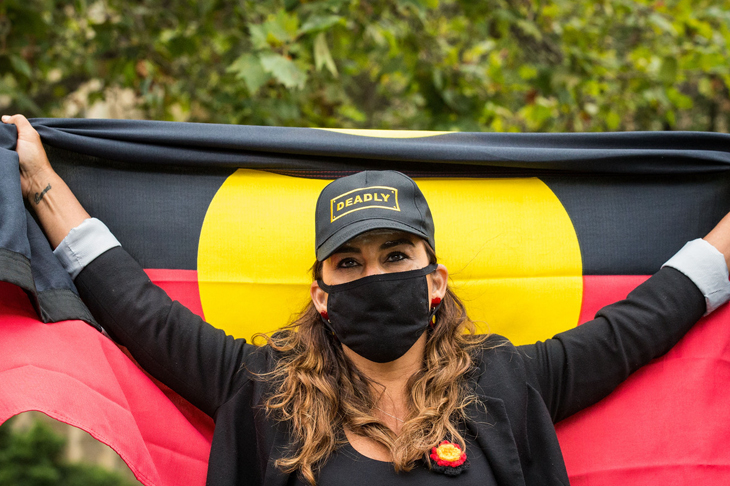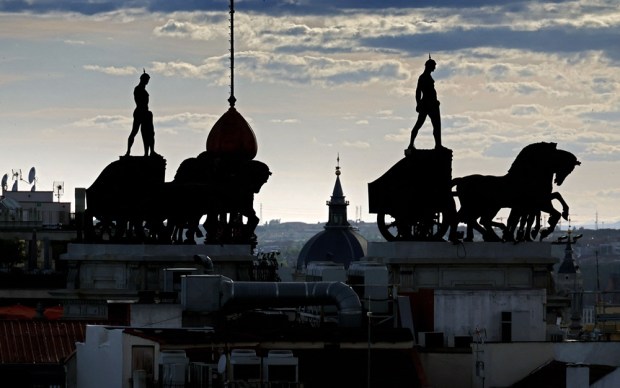The good news that has just come to hand is that the federal government has decided to keep as a closely guarded secret everything that the voter needs to know before voting on the proposed Voice for aboriginals. This is a great relief and has enhanced the prospect of this long overdue reform being implemented. After all, too much detail would have confused the voters, put the whole project at risk and diverted them from the real issue in the referendum, namely that if every elite in the country thinks the Voice is a wonderful idea, which is obvious, how could you not vote for it? So, too much information would have been dangerous. The more they knew about it, the more the voter might have been needlessly alarmed about what was proposed.
For a while, I thought we would have to come clean on giving answers to at least the bare minimum of questions that are raised about the Voice. Nothing fancy, but questions like what will the Voice actually do? Who will be able to stand as a candidate or vote in its elections? Will there be any elections? Will it be just advisory, or will it have executive and legislative powers? If so, what will they be? Will it pay its own way? Will it be subject to the courts and the ordinary law like the anti-racism and anti-discrimination laws? Will it exist forever or just for a fixed term?
With questions like that floating around, and unanswered, it looked perilously like we would have to give some detail or people would think the worst of the Voice. After all, if the idea ever took hold that our whole system of government was about to be turned upside down by a new black parliament, with an electoral roll based on race, where only one race can vote or stand for election (if there are any elections) and a special set of laws for one class of the community, no one would vote for it. And that would of course be a major catastrophe, especially when everyone in the political parties, the media and virtually every self-respecting celebrity and multi-millionaire that I know, wants the Voice and wants it now.
But in the sober light of day, I realise that burdening the people with anything remotely like the detail of what they are voting on would be even more dangerous and probably fatal to this laudable objective. Giving voters any details on issues like those listed above would simply confuse them, create a demand for more information and might even put the very existence of the Voice at risk. So, I am absolutely thrilled that the government has hit on the solution to this looming problem: just don’t provide any information at all. It is obviously better and much safer, and more in the public interest, to keep the details of the Voice a secret, so that the people will not be diverted by minutiae of that sort before they come to vote. And as the minister, Linda Burney, said last week, it is much better to get it into the constitution and provide the details later, after people have voted in favour. And as she added, the detail can then be changed as well. It reminded me of that great electoral reform in the Central African Republic of counting the votes before they are cast.
Take the question of whether the Voice will only be advisory or whether it will have real power and actually do things. Up to now, the argument has been that the Voice will only be advisory and that no one should be scared of it because it will not do anything. I never thought that argument would fly. People would say, ‘Oh, yes; it’s only advisory, but if its advice is rejected, they will never shut up and sooner or later they will get their own way. And the unelected backboneless courts will give them what they want, even if the elected government will not.’ But now, that obstacle has disappeared with one stroke and what a relief! The government has hit on the perfect solution: don’t say if the Voice will only be advisory; don’t say what issues it might give advice on, don’t say if it will have power to do anything else and, above all that, do not under any circumstances give any details. That way, no one can say its powers are excessive because no one will know what they are. And by the time we get the referendum passed, it will be too late and the Voice that we all want will be on the statute books. So, we can all breathe a lot easier, now that the voters will not know anything at all about the Voice when they come to vote on it; sorry, when they come to vote for it.
But there is more good news. The ABC, our guardian on these weighty moral issues has had a stroke of genius. In a referendum, the government must publish a Yes and a No case, so both sides are presented to the voters and equal money is spent on each. I always thought that was a bit risky; equality is all very well, up to a point, but if people read too much of the wrong side, they might be tempted to vote for it, and we know what that can lead to. But the problem was solved last Sunday on Insiders. An ABC journo, Dan Bourchier, with nodding and agreement from the panel, revealed a ‘sense’ he had detected, in a way that only the ABC can ‘sense’ these epochal forces, that ‘if you put equal funding for a No case, you are essentially creating one where there might not be one’. Dan really put his finger on the issue. There might actually not be a No case. Probably better not to have one.
Got something to add? Join the discussion and comment below.
Get 10 issues for just $10
Subscribe to The Spectator Australia today for the next 10 magazine issues, plus full online access, for just $10.
You might disagree with half of it, but you’ll enjoy reading all of it. Try your first month for free, then just $2 a week for the remainder of your first year.















Comments
Don't miss out
Join the conversation with other Spectator Australia readers. Subscribe to leave a comment.
SUBSCRIBEAlready a subscriber? Log in